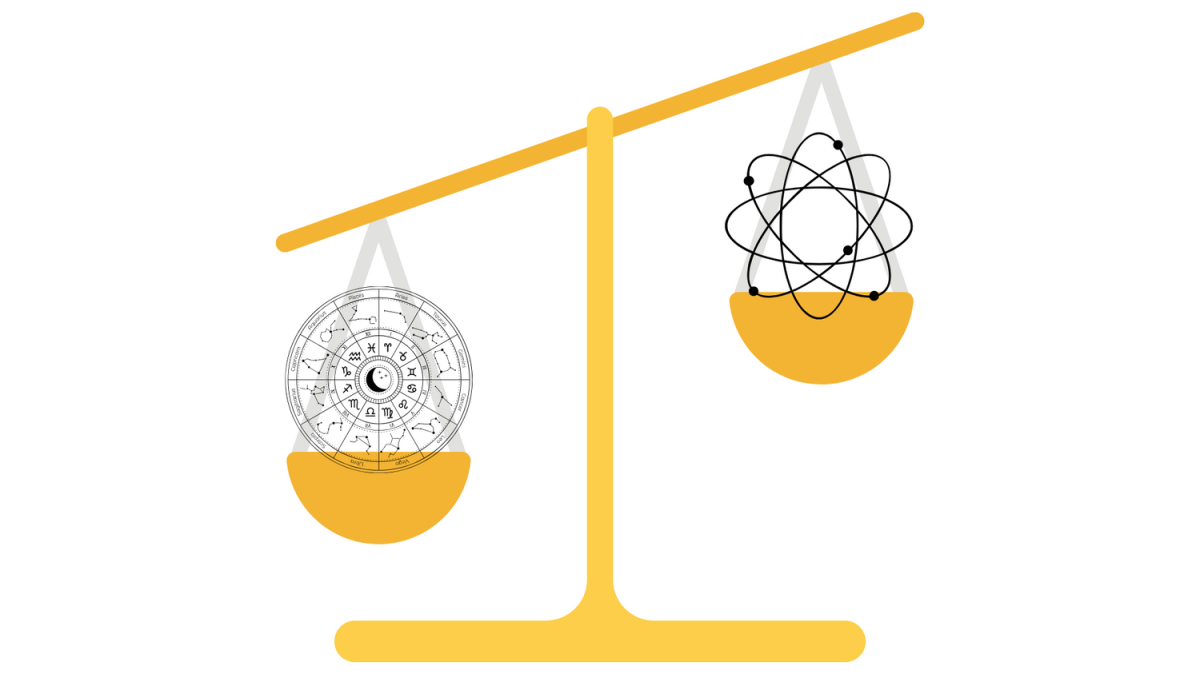Horoscopes. Palm readings. Essential oils.
These trends and many others have exploded in popularity among adolescents across the world, with millions of followers partaking in them.
In recent years, these practices have reached mainstream attention, with influencers promoting products that try to help enhance the wellbeing of their followers. Yet, all of them have one major problem: All of them are fake, or at the very least, inaccurate.
Horoscopes have no inherent ability on predicting future events, palm readings lack any correlation with the physiological traits that they attempt to predict, and Essential Oils do not provide medical improvement to those who take them.
Yet, even with the lack of scientific evidence to back them up, people still do them. In fact, the form of alternative medicine has left a mistrust in real medicine that could undermine its ability to save people’s lives.
PV Junior Landon Weise notes that the propagation of pseudoscientific theories like Flat Earth have challenged scientific thought. “The spreading of misinformation opens a world where scientific fact is not necessary to believe information. This is bad because theories like Flat Earth can spread without anyone fact-checking them,” he noted.
While from an outsider’s perspective it might seem shocking that so many people are adopting alternative forms of science, It makes sense psychologically why there are so many users.
For one, people have shifted to alternative medicine because it triggers confirmation bias in users. Whenever they see any product that aligns with their beliefs, they are more inclined to buy it.
Horoscopes do a great job by this, as any advice that an astrologer gives is so vague that it could easily be put out of context. This is because astrology uses a set of rules on the alignment of the planets and stars to make conclusions on the destiny of users. This is usually very inaccurate because there are no strict margins of error for making conclusions, leaving any final decision making up to the astrologer.
Next, the astrologer will say a positive trait that any user is most likely to believe in. Usually any positive trait works, which makes it really easy for astrologers to make a conclusion that the user agrees with. This action triggers a confirmation bias with the user, leading them to believe in it and attend further sessions in the future, which gives the astrologer more profit.
While ultimately this is harmless, Weise expresses concern that it could lead the unsuspecting user to believe in other incorrect ideas from people they trust. “Many people trust other people who do not believe in scientific fact, so it could lead more people believing what their peers believe simply because they trust them,” he noted.
Essential oils suffer from the same problem. They are marketed as having positive health effects, which impresses buyers with their charm. Additionally, many people get attached to them because their peers are supporting the product. This in turn encourages them to follow their stance on the product and support it more.
Another downside to following alternate science is that it blurs the line between measurable fact and fiction. This is because most of the evidence that is used in alternative science relies on anecdotes, rather than empirical data. For example, one would support the argument of essential oils using customer reviews rather than raw data that says it works.
This is also inaccurate because customer views are loaded with bias, which does not effectively translate into how well a product performs. In fact, people who use alternate science are strongly more likely to reject any sort of negative connotations about the product and are much more likely to be able to side with it.
Additionally, when customers trust products, they trust products or ideas that associate with them. For example, the belief in the strength of essential oils is strongly linked with vaccine hesitancy, according to a study.
It is clear that there are major risks with taking all sorts of alternative science trends. While they might seem harmless, all of their side effects are detrimental to the public’s trust in evidence-based medicine, scientific integrity and informed decision-making, posing substantial risks to individual health outcomes and societal well-being.









